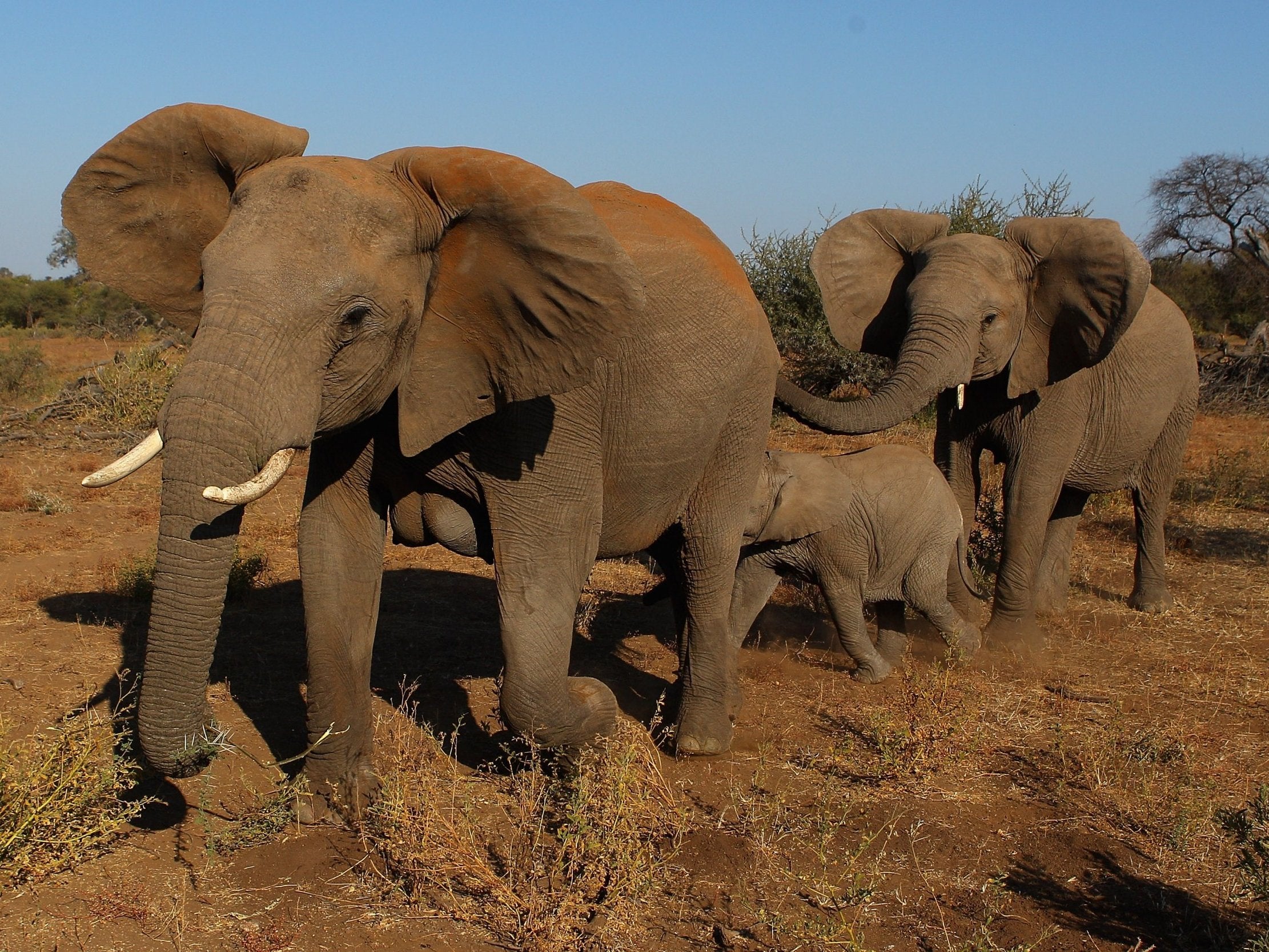Botswana could lift hunting ban and let tourists shoot elephants
Lawmakers say limited cull will curb growing conflict between country’s wildlife and people

Your support helps us to tell the story
From reproductive rights to climate change to Big Tech, The Independent is on the ground when the story is developing. Whether it's investigating the financials of Elon Musk's pro-Trump PAC or producing our latest documentary, 'The A Word', which shines a light on the American women fighting for reproductive rights, we know how important it is to parse out the facts from the messaging.
At such a critical moment in US history, we need reporters on the ground. Your donation allows us to keep sending journalists to speak to both sides of the story.
The Independent is trusted by Americans across the entire political spectrum. And unlike many other quality news outlets, we choose not to lock Americans out of our reporting and analysis with paywalls. We believe quality journalism should be available to everyone, paid for by those who can afford it.
Your support makes all the difference.Tourists visiting Botswana could be allowed to shoot elephants under government plans looking at lifting a five-year-old ban on big-game hunting.
Ministers in the country – home to a third of all Africa’s elephants – say “regular but limited” culling should also be made legal again in a bid to curb what they call a “growing conflict” between humans and wildlife.
Lawmakers claim the 130,000 elephants there have caused increasing problems for small-scale farmers and rural villages as their numbers have grown following 2014’s hunting ban.
They say thousands of the animals have started to range into areas traditionally free from them.
“We recommend a legal framework that will enable the growth of a safari hunting industry and manage the country’s elephant population within the historic range,” said government minister Frans Van Der Westhuizen, who has chaired a cabinet committee looking into the issue.
But opponents say the country’s tourism – one of its biggest economic sectors – has grown as a result of the ban and that reversing the legislation would damage democratic Botswana’s international reputation for conservation.
The committee’s report – which also suggests the closure of some wildlife migratory routes – was handed in to president Mokgweetsi Masisi on Thursday.
He said: “I can promise you and the nation that we will consider it. A white paper will follow and it will be shared with the public.
“If needs be, we will give an opportunity to parliament to also interrogate it, and also allow them the space to intervene before we make a final determination.”
Join our commenting forum
Join thought-provoking conversations, follow other Independent readers and see their replies
Comments